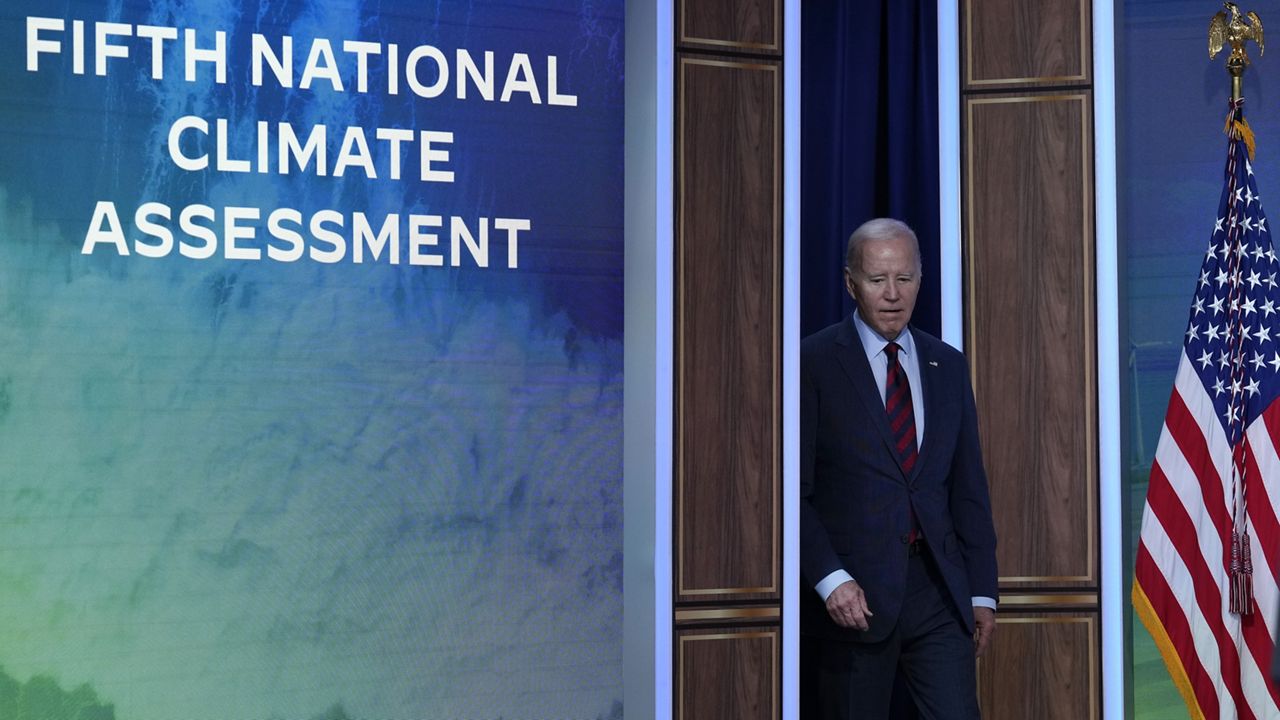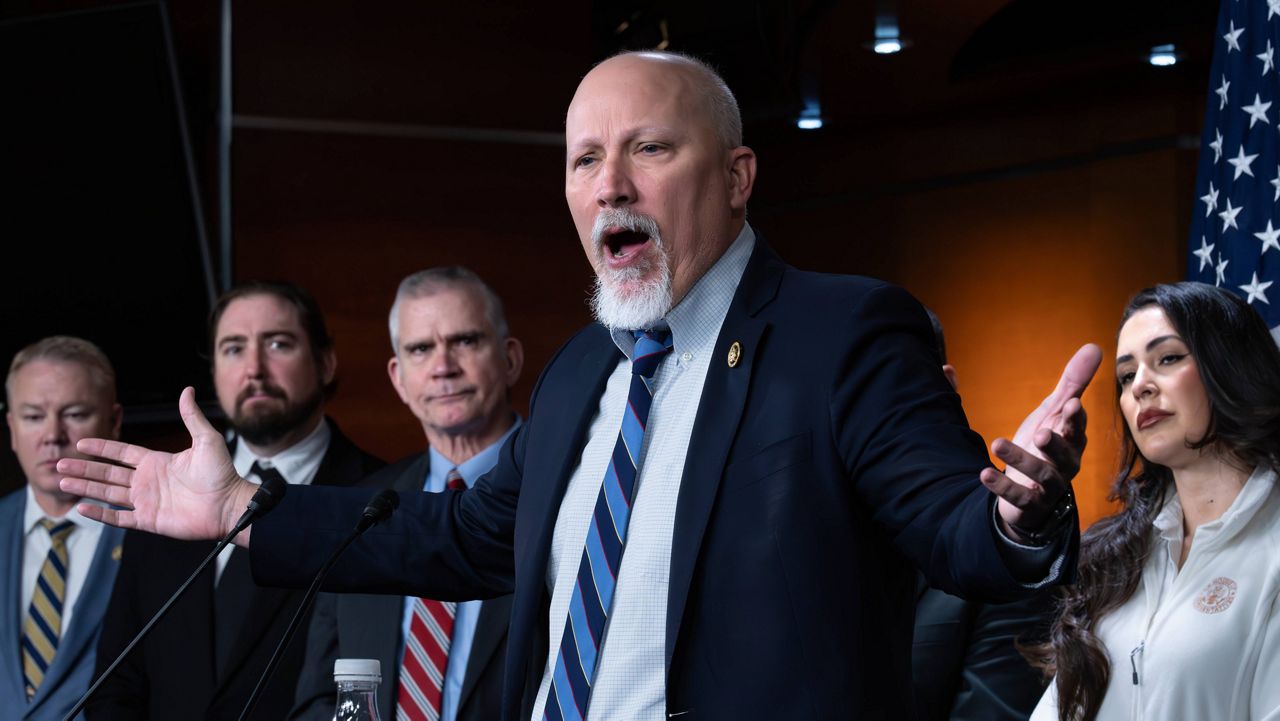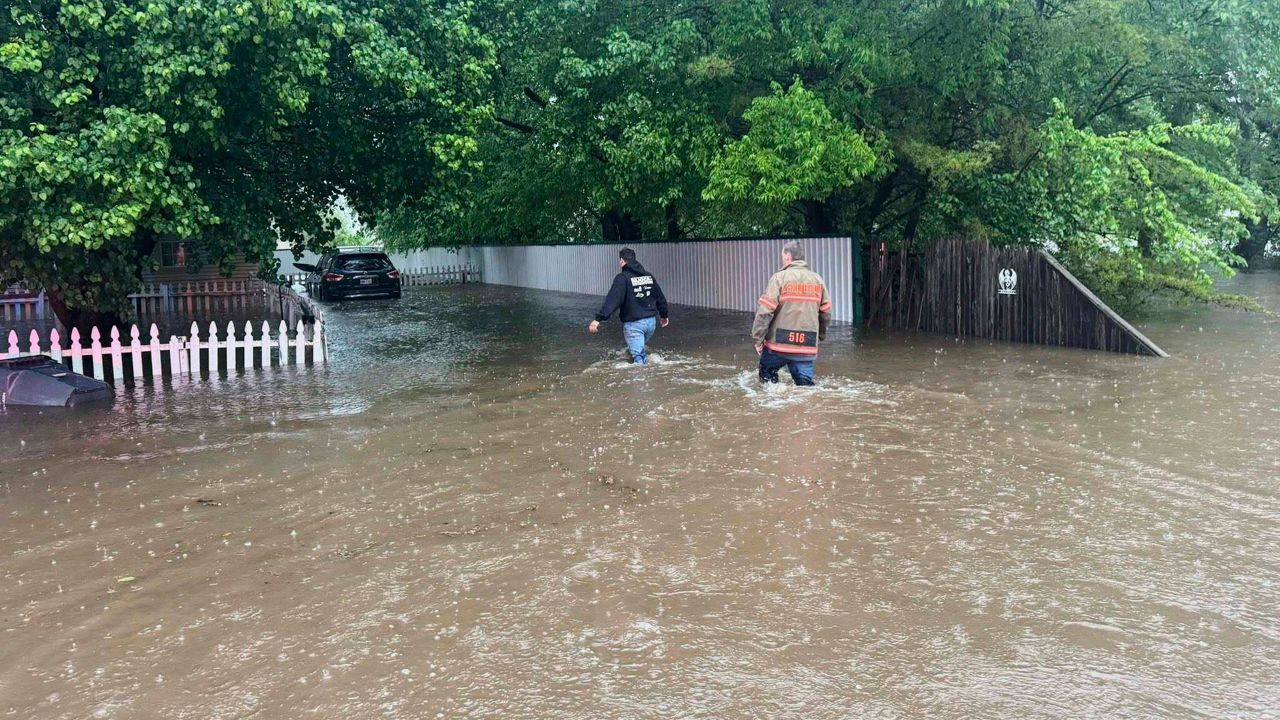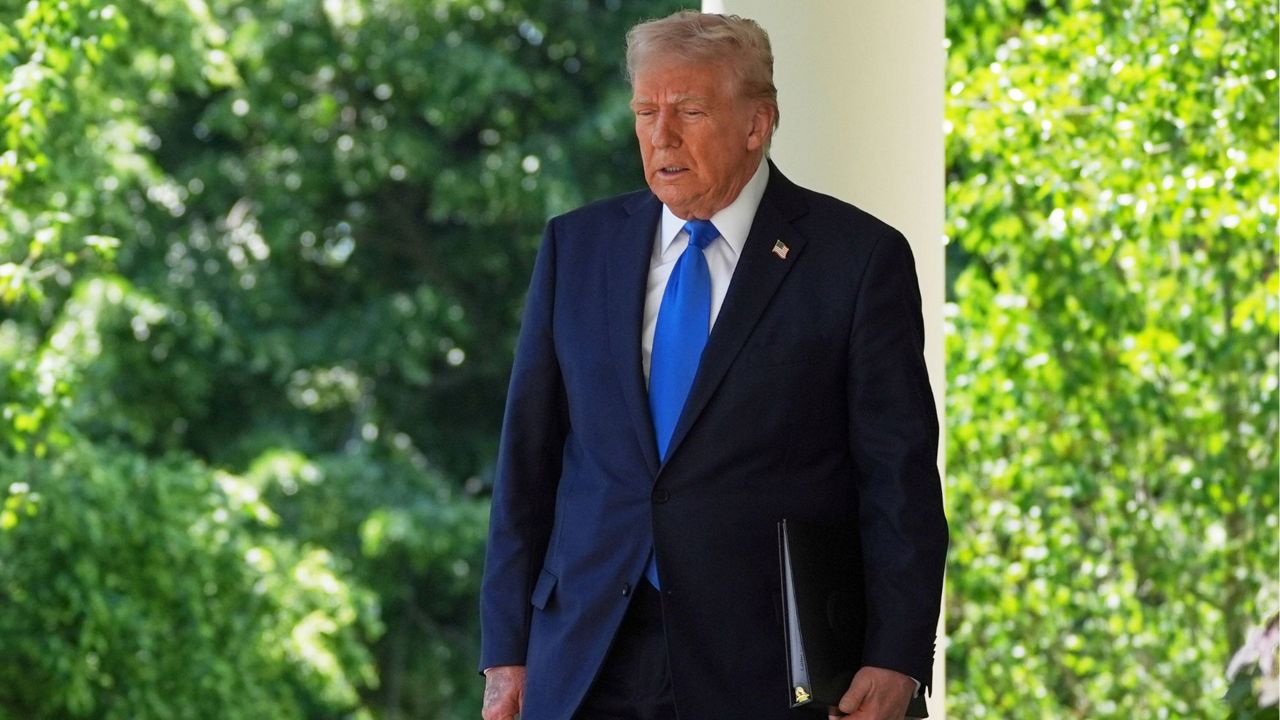Addressing donors at a private campaign reception at a San Francisco home last week – a setting which lacks TV cameras, brings only a small group of press and has become known as a place in which President Joe Biden is often a bit more loose-lipped – Biden choose a new moniker for Russian President Vladimir Putin: “crazy SOB.”
Biden’s new nickname for the Russian leader drew headlines – even prompting an attention-grabbing comment from the Kremlin, which responded by accusing the U.S. president, who was on a three-day fundraising swing through California, of acting like a “Hollywood cowboy.”
But also not to be overlooked was the context in which Biden used the phrase – to apparently make the point that climate change is “the existential threat to humanity,” even when considered in the same breathe as one of Biden’s biggest foes on the world stage who he recently blamed for Alexei Navalny’s death and whose country he just imposed hundreds of new sanctions against.
“We have a crazy SOB like that guy Putin and others, and we always have to worry about nuclear conflict. But the existential threat to humanity is climate,” Biden told donors last week.
The president’s reference to climate change as an “existential threat” has become a staple of his speeches on the environment or really almost any of his remarks focused on his policy agenda more broadly, even getting a mention in his State of the Union address last year.
And just this week, the president kicked off highly-anticipated remarks on the border by speaking about the wildfires currently raging in the Texas panhandle and Oklahoma and assigning a new phrase to describe people who don’t believe in climate change – “neanderthal.”
Biden has made addressing the climate a key part of his agenda – touting his move to bring the U.S. back into the Paris climate agreement and setting goals like achieving carbon pollution-free electricity by 2035 and reaching a net-zero emissions economy by 2050. The GOP has even branded his objectives as “Biden’s war on American energy.”
But in the face of it all, an interesting reality exists: domestic oil production hit a record last year, when Biden occupied the Oval Office.
In October last year, weekly U.S. oil production hit 13.2 million barrels per day, reaching a new high that has already been surpassed this year when that number hit 13.3 per day in February, according to the U.S. Energy Information Administration. The previous high of 13.1 million barrels per day came in early 2020 during the Trump administration.
On the surface, the figures may seem to stand in contrast with the president’s objectives on climate and the GOP’s criticism that there is an attack on domestic production. In reality, director of energy security and climate at the Brookings Institution Samantha Gross said the numbers have little to do with Biden.
“Each individual president really doesn’t have a lot of control over how much oil is produced, especially how much oil is produced right now,” Gross said.
She noted production levels at a point in time depend more on leasing decisions for federal land that were made years ago under different administrations, as well as market conditions in the moment.
“Part of it is leasing decisions – at least the federal side of it – is leasing decisions that were made a long time ago and then part of it is what companies decide to do with the land they already hold, either privately or under land they leased before, based on the market now,” Gross said.
“If you take those two things and put them together, President Biden’s influence on the level of oil production today is actually quite low,” she added.
As an example, Gross cited the Willow Project – a large oil-drilling project in Alaska that Biden allowed to move forward nearly a year ago, prompting major backlash from environmentalists.
“The leases were more than 20 years old,” she said of the project.
Dustin Meyer, Senior Vice President of Policy, Economics and Regulatory Affairs at the American Petroleum Institute, agreed that current levels had little to do with the president, citing “industry investment and long-established policies” as the reasons for record production.
“This production increase comes from private lands where the administration of either party doesn’t have a whole lot of room to influence but there has been some production gains even on offshore and on public lands,” Meyer said. “That is the result of previous administrations.”
Meyer added, however, that a president’s decisions can impact production down the line and he is particularly concerned, he said, about Biden’s approach to the issue.
“The core of our concerns over this administration's energy policy has always been the impact that this could have on the long-term energy future of our country,” he said. “In order to have a viable U.S. energy industry, we need predictable, long-term and consistent policy that reflects the need and the value for more U.S. energy production over time.”
“We get concerned that this is laying the groundwork for problems coming down the road,” he said.
In terms of specific policies, Meyer pointed to the administration’s five-year plan for offshore oil and gas leasing finalized late last year.
“Unfortunately, this administration’s five-year program that they put out offered the fewest lease sales in the program’s history,” he said.
Meyer also mentioned Biden’s recent decision to pause approvals of applications to export liquefied natural gas, which drew loud condemnation from Republicans in Congress.
Gross notes that while Biden “has done more for the climate than any president of the United States has ever done – bar none,” the U.S. is “extremely likely to still be producing oil” for a while.
Either way, the issue is poised to play a role in November’s election, so much so that former President Donald Trump – who looks likely to face Biden in a rematch – cited it as one of two reasons he would be a dictator only on “day one” if he is elected.
“Except for day one,” Trump said when asked about whether he would abuse power as retribution during an interview with Fox News. “I want to close the border, and I want to drill, drill, drill.”
But, for the incumbent president seeking another four years in the White House, Jane Hall, an associate professor at American University and author of Politics and the Media: Intersections and New Directions, noted the issue could require a more nuanced approach.
“We're in an election year, Biden obviously wants to appeal to voters in Texas whose livelihoods depend on the oil industry and also he wants to invoke his real advocacy and work on climate change, especially to young voters,” Hall said.
“He's got to run on what he's doing, and what he wants to do, and also be sure that he appeals to the people who helped him get elected,” she added.
In a clear display of the potentially difficult political tightrope ahead, Democratic Sen. John Fetterman, representing the key swing state of Pennsylvania, told POLITICO this week that he and fellow Pennsylvania Democrat Sen. Bob Casey “disagree” with Biden’s pause on new exports of U.S. liquified natural gas.
“We stand with the president, but on this issue we happen to disagree. I am very clear. Natural gas is necessary right now. It’s a critical part of our nation’s energy stack,” Fetterman told POLITICO.
At the same time, as Hall points out, the issue of climate is particularly salient with young voters – a coalition that could be key to Biden's chances this November.
“Young voters are particularly keen on climate change as a voting issue,” Hall said.
“Younger voters, as a demographic overall, have voted for the Democratic [candidate] for president time and time again,” she added. “And so if you can get them out, it’s important.”
A NPR/PBS NewsHour/Marist poll conducted last year found 60% of those surveyed aged 18 to 29 believe climate change should be a priority even at the risk of slowing economic growth and 64% said it is a major threat.
Biden has faced heat from some climate-focused voters head-on. Before demonstrations calling for a cease-fire in the Israel-Hamas war became frequent at Biden’s public events, the president was interrupted during a speech last year by a climate protestor.
In January of this year, Biden faced both at the same time when his remarks at the South Carolina Democratic Party’s “First-in-the-Nation” celebration dinner were met with protests over both the Israel-Hamas war and climate.
Many of such protestors want Biden to declare a climate emergency – something the president last year argued his actions on climate had already amounted to “in practice.”
“If he is losing some younger voters on their opinions about the Israel Hamas war and what the Biden administration has been doing, it makes it probably even more important for him to try to talk about what he's doing and done on climate, while also not being portrayed as anti-jobs,” Hall said.








